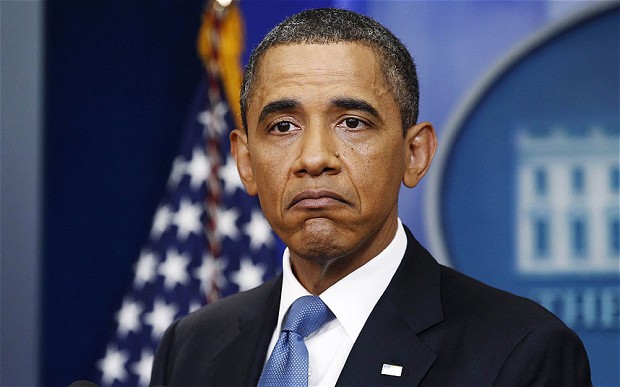Daily Stormer
May 1, 2014

But Obama doesn’t care, because the war in the Ukraine is good for the Jews.
A near-majority of Americans say the United States should become less active in world affairs, a dramatic change from the post-9/11 national environment and one that comes as President Barack Obama tries to juggle crises in the Middle East and the Ukraine.
In a new NBC News/ Wall Street Journal poll, 47 percent of respondents said the U.S. should dial down its activity in foreign affairs, versus 19 percent who said the country should be more active around the globe. Three in ten respondents said the current level is correct.
That represents a major flip in how Americans view world affairs since the aftermath of the September 11, 2001 attacks. At that time, nearly 4 in ten Americans said they wanted to see more engagement around the world, and just 14 percent said the nation should be less active.
Comparable studies in the mid-1990s found that about a third of Americans believed the U.S. should reduce its foreign policy footprint.
Obama –whose rise to the presidency was built partially around his opposition to the Iraq War – is definitely cognizant of Americans’ aversion to too much intervention abroad. As recently as Tuesday, he defended his foreign policy strategy — with a nod to the conflict that galvanized support for him as a candidate in 2007 and 2008.
